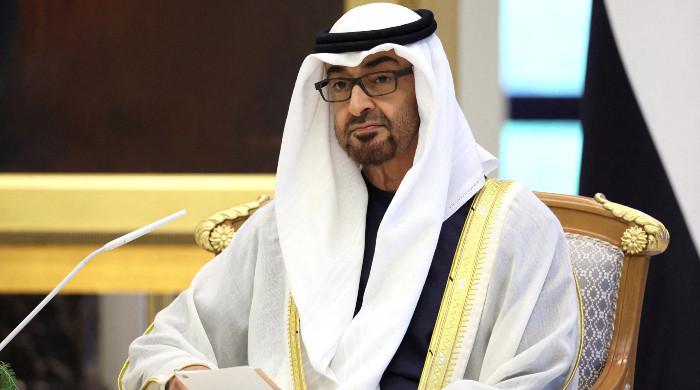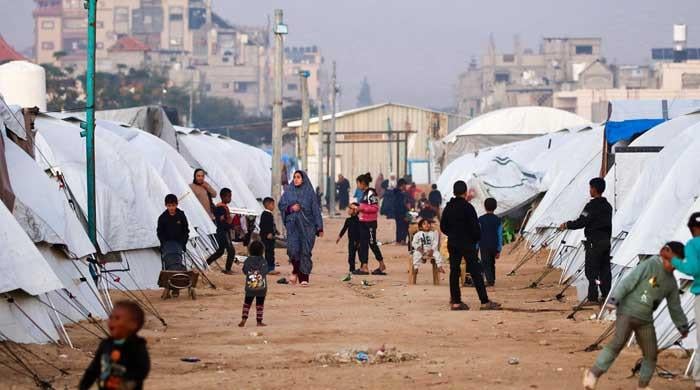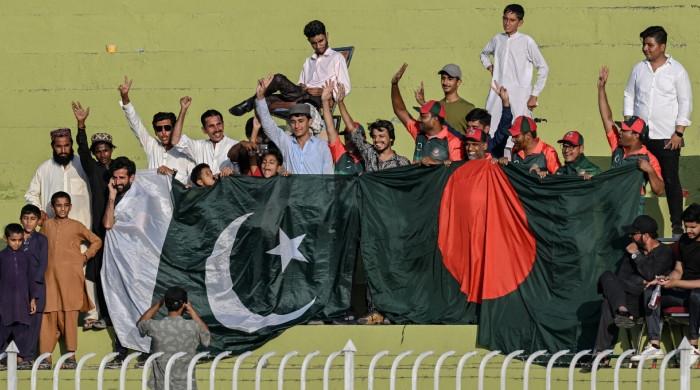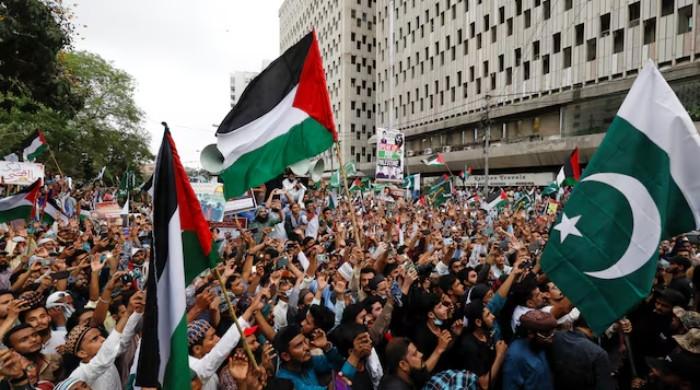Politicisation of 'civil awards'
Why was Zulfiqar Ali Bhutto against giving civilian awards except in two or three categories?
August 16, 2024
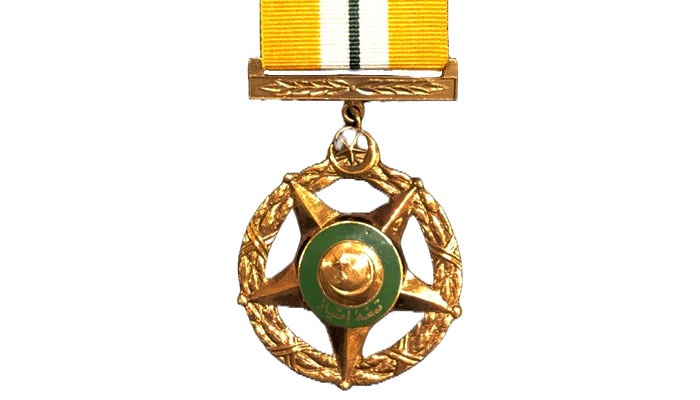
One of the authors of the 1973 Constitution, the late Abdul Hafeez Pirzada, once quoted former prime minister Zulfiqar Ali Bhutto’s (ZAB) remarks regarding the inclusion of 'civil awards' in the Constitution during a hearing before a Supreme Court bench headed by former chief justice Iftikhar Mohammad Chaudhry. This led to the incorporation of Article 259, titled 'AWARDS', during the drafting of the Constitution.
I was present in the Supreme Court during the hearing in Islamabad when Pirzada, who played a leading role in the negotiations between the government and the opposition, which finally led to the historic Constitution being passed almost unanimously, except for two or three lawmakers who did not sign. He quoted Bhutto as saying: “There is no need for awards for public service, as it is our responsibility as patriotic Pakistanis to serve the country to the best of our ability.” The former premier was against giving civilian awards except in two or three categories, as whatever we do is our responsibility as Pakistanis,” he said while quoting from ZAB’s speech.
A few months ago, the Supreme Court of Pakistan, while ‘correcting the historic wrong’ committed in the case of the former prime minister, acknowledged that Bhutto was not given a fair trial in all the important cases that ultimately led to his execution.
Now, on Pakistan’s Independence Day, President Asif Ali Zardari has conferred the ‘Nishan-e-Pakistan’ on former prime minister Zulfiqar Ali Bhutto in recognition of his ‘public services.’ Unfortunately, many controversial names, who hardly provided any ‘public service’ except for some ‘private services,’ also appeared on the list. This is not surprising, as these ‘awards’ have been politicised since the 1977 Martial Law, and even post-Zia civilian governments have not bothered to review Article 259.
The article has clearly defined the categories included after Bhutto’s historical remarks, which read:
(1) No citizen shall accept any title, honour or decoration from any foreign state except with the approval of the Federal government.
(2) No title, honour or decoration shall be conferred by the Federal government or Provincial government on any citizen, but the President may award decorations in recognition of gallantry (meritorious services in the Armed Forces), academic distinction or distinction in the field of sports and nursing as provided by the Federal Law.
(3) All titles, honours and decorations awarded to citizens by any authority in Pakistan before the commencing day otherwise than in recognition of gallantry, academic distinction shall stand annulled.
Correct me if I’m wrong, but I don’t recall any amendments being made to this Article. Therefore, either proper amendments should be made to the said Article of the Constitution, or it should be retained as is. For instance, each category needs to be properly defined, like ‘Pride of Performance’ or ‘Public Service,’ as is done for gallantry, academic distinction, and nursing, with proper citations. Often, such awards are conferred based on political ‘likes’ or withheld based on political ‘dislikes’ for individuals.
Arguably among Pakistan’s most popular politicians, who transformed the discourse of Pakistani politics from drawing rooms to the masses within 20 years of entering politics, he occupied all key positions—from foreign minister to prime minister, from the first civilian martial law administrator (in the absence of any Constitution) to the president of Pakistan. He ultimately went to the gallows, leaving unmatched marks in our turbulent political history. Bhutto will also be remembered for his controversial role in the 1971 East Pakistan crisis, which eventually led to the ‘fall of Dhaka’ during General Yahya Khan’s tenure as President and army chief.
In the post-1972 era, Bhutto, who ruled Pakistan for four years, made some historic as well as controversial decisions. Within a year, he gave Pakistan its Constitution, passed unanimously by parliament with the consent of both the government and the opposition in 1973. He also became known as the founder of Pakistan’s nuclear programme, and to this day, no one can take this unmatched ‘award’ from him.
He was a magician when it came to foreign affairs, playing a key role in bringing the Muslim world onto one platform, while also strengthening the “Third World” and the Non-Aligned Movement. His genius resulted in the historic 1974 Islamic Summit. He became close to the Soviets, and setting up Pakistan Steel Mills was the result of this friendship. Sadly, his successors destroyed this ‘heavy industry.’ All this led to the famous meeting between former US secretary of state Henry Kissinger and ZAB, which ended on an “unpleasant” note with a threat that if Pakistan didn’t stop its nuclear programme, it must prepare for horrible consequences.
However, on the internal political front, Bhutto made decisions that many believe were driven by his feudal instincts. His decision to dissolve the Balochistan government, which led to the dissolution of the NWFP (North-West Frontier Province) government — both ruled by the opposition National Awami Party and Jamiat Ulema-e-Islam — and the subsequent army operation, did not go well. His government's track record on freedom of the press and human rights is very poor and deplorable. His premature policy of ‘nationalisation’ without proper groundwork led to significant criticism, but his land reforms had a positive impact, earning support from labourers and peasants.
Two of Bhutto’s most controversial decisions contributed to his downfall: the appointment of General Zia ul Haq as army chief, which, according to veteran Barrister Kamal Azfar, was made at the request of Jordan’s King Hussein, and the announcement of general elections a year earlier than scheduled in 1977.
The 1977 movement, led by the nine-party alliance Pakistan National Alliance against election rigging, resulted in the imposition of Martial Law by General Zia, who had promised elections in 90 days. However, he became scared after intelligence reports suggested a landslide victory in favour of the PPP and Bhutto.
Bhutto was sentenced to death in what was regarded as the most "shameful judicial verdict" of 4-3 in the Supreme Court. He did not make any mercy appeal and also turned down an NRO (National Reconciliation Ordinance) proposed by figures like the late Ghulam Mustafa Jatoi.
On April 4, 1979, he was executed, but his political legacy refused to die, surviving to see the rise of his daughter Benazir Bhutto, who became prime minister in 1988. However, with her assassination on December 27, 2007, the Bhutto era has almost died, too.
Perhaps Bhutto does not need any civil award, as he had already made his indelible mark on Pakistani politics almost 60 years ago. The founder of Pakistan’s nuclear bomb programme, in an interview with me, once said, “I haven’t seen anyone as patriotic as Zulfiqar Ali Bhutto.”
The writer is a columnist and analyst for GEO, Jang and The News
X:@MazharAbbasGEO




